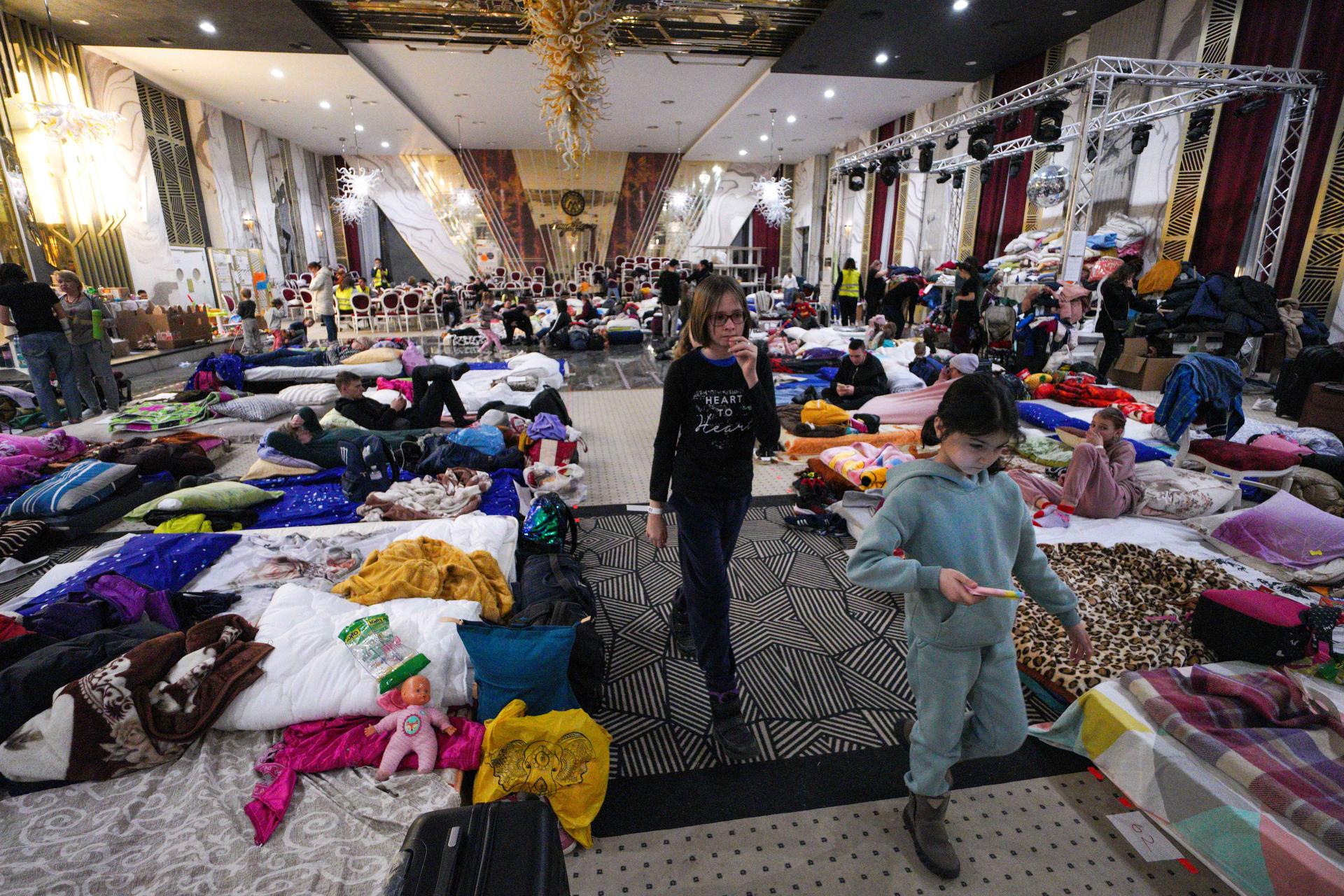The Russian invasion of Ukraine has now displaced almost 2 million people in less than two weeks.
Most men between the ages of 18 and 60 are forbidden from leaving Ukraine.
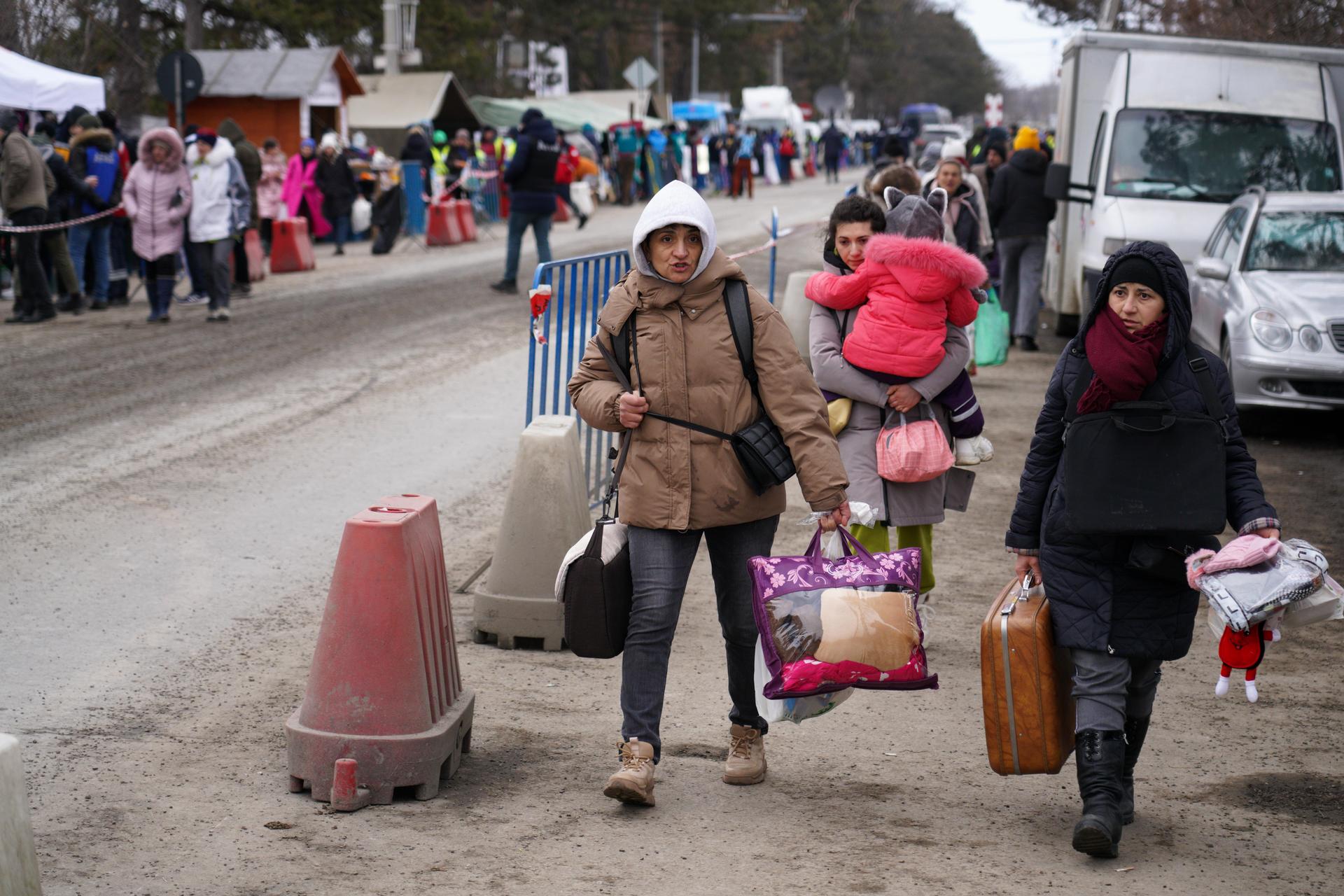
Though Poland has taken in the bulk of refugees, two of Europe’s poorest nations — Romania and Moldova — have accepted more than 160,000 people so far, according to the United Nations.
Related: Why Zelenskiy’s ‘selfie videos’ are helping Ukraine win the PR war against Russia
At a border crossing near the Romanian town of Suceava in the country’s northeastern corner, a cluster of volunteers and aid group tents receive hundreds of Ukrainian refugees a day. Many refugees have arrived disoriented and tired in the bitter cold, some in tears.

A woman named Nastya, who only gave a first name, waited at the border crossing for a bus to Germany with her 11-year-old daughter. After staying in bomb shelters, they fled Kyiv for the Romanian border. Nastya said that she can’t stop thinking about her parents, who were too sick to travel. Just a few weeks ago, she and her siblings had celebrated her mother’s 83rd birthday, surprising her with a vacation to Egypt that they had all pitched in for. Now, it feels like a distant dream.
Back home, “We have [a] great life,” she said. “All my life is there.”
Related: ‘The risk of escalation is too great’ for a no-fly zone in Ukraine, analyst explains
Volunteers and aid groups in Romania are providing assistance to Ukrainian refugees at border crossings including at Sighet and Siret, in the north, and Isaccea, in the south.

The Romanian government has also offered medical services, railway transport and schooling for children for refugees from Ukraine.
“I want it to be clear from the outset: No Ukrainian, no Ukrainian will be denied entry into Romania. Moreover, we are in talks with our neighbors in the Republic of Moldova, to help them as well … This situation, according to our assessment, will continue for a long time, and the complications will worsen.”
“I want it to be clear from the outset: No Ukrainian, no Ukrainian will be denied entry into Romania,” Romania’s prime minister, Nicolae Ciucă, said on a visit to Siret on March 5. “Moreover, we are in talks with our neighbors in the Republic of Moldova, to help them as well … This situation, according to our assessment, will continue for a long time, and the complications will worsen.”
But here at the crossing in Siret, in the poorest part of the country, it appears to be largely foreign aid groups and the local Romanian community receiving people — mostly women and children — not the federal government.

One man from a nearby village, Ilut Gherghe, handed out warm hamburgers from a paper bag in his arms.

“We have compassion for them. It’s a kind of moral support.”
“We have compassion for them,” Gherghe said in Romanian, through a translator. “It’s a kind of moral support.”
A line of tents filled with refugees and aid workers also dispensed warm clothes, groceries and diapers. Turkey’s disaster aid agency brought a portable kitchen — complete with a rotating spit of roasted meat for doner sandwiches, and kettles of hot tea.
Related: Russia’s invasion in Ukraine ‘is far from done,’ retired Lt. Col. Alexander Vindman says
Also available: free SIM cards for internet access, a mobile vet clinic, and chocolate — in high demand.
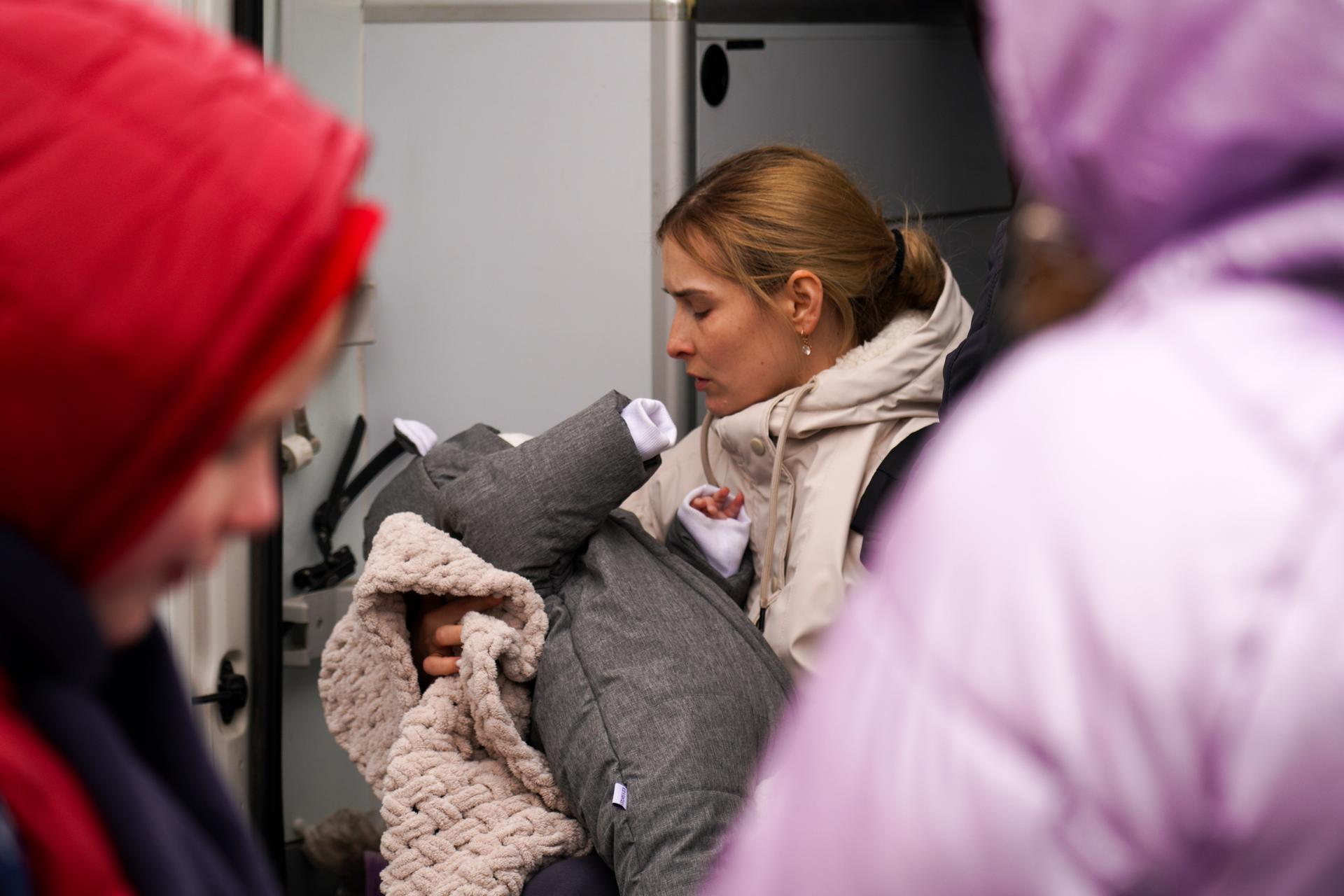
Two students from a nearby university worked at a table filled with candy and toys. Vlad Mardare, 20, handed them out to every child that passed by — hoping to offer comfort.
“Maybe he’s stressed out or maybe he’s crying – you just give him the toy and in that moment he smiles, he calms down. That’s what matters,” Madare said.
He recalled a moment recently when he gave a toddler a fluffy stuffed rabbit out of sight of the mother. The mother, who until that moment had been distracted and crying, suddenly stopped.
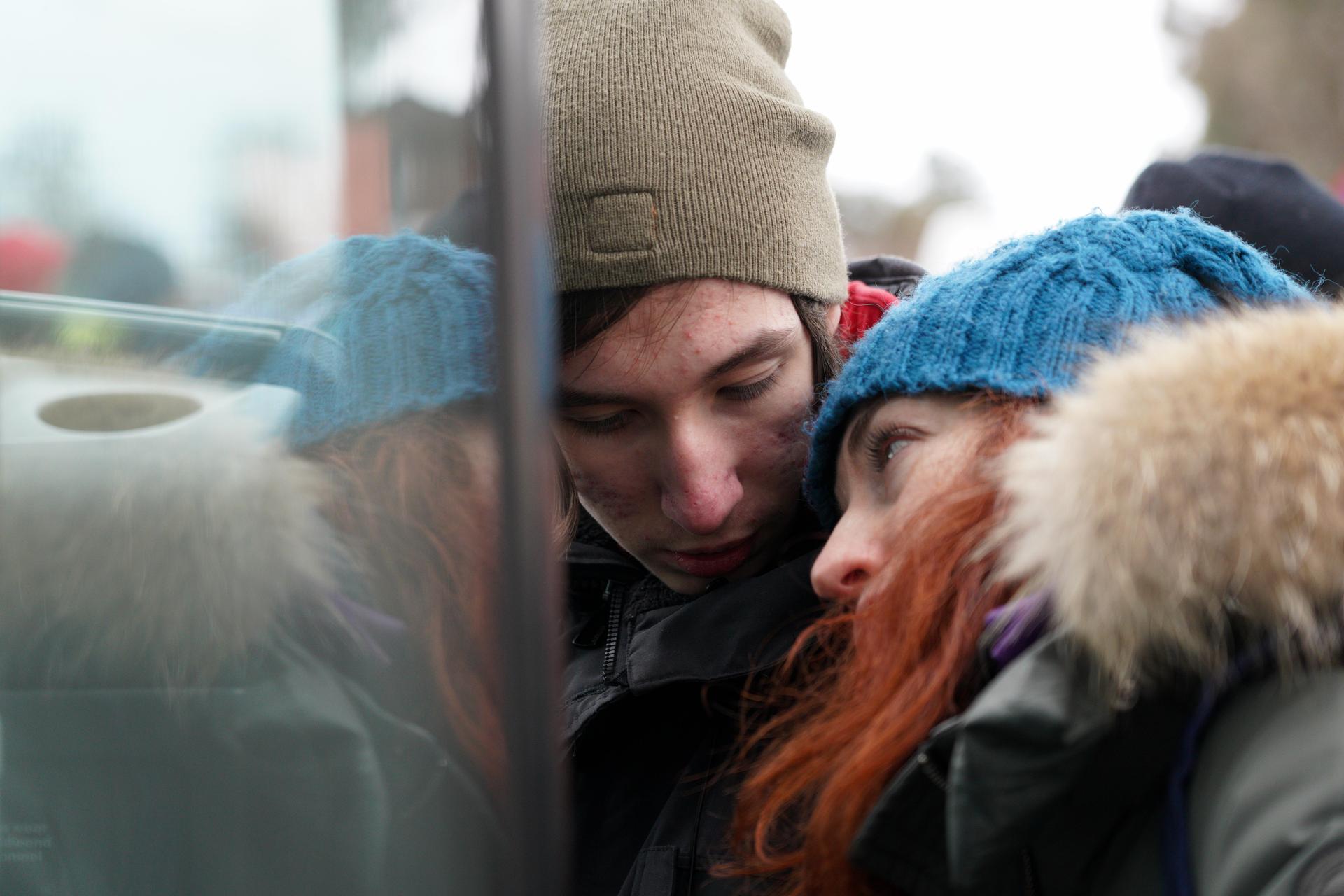
“We didn’t even exchange a word but the look she gave me, I said [to myself], ‘Man, I have to wake up tomorrow and the day after tomorrow to get here and to help,’ you know?” Mardare said.
In the past 24 hours, 7,000 people have passed through this gate, according to Romanian officials. Many came to this country because it was the only way they could get out of Ukraine.
Now, volunteers coordinate buses and shuttles to Poland, Italy and Germany so families can reunite with other relatives in Western Europe.
Amid a rush to board a bus to Berlin, one woman panicked when she learned it was full. She insisted that she’d been waiting for four days and needed to get on that bus.
A volunteer reassured her that another bus was coming and that help was available to find a place to stay for those who needed it.
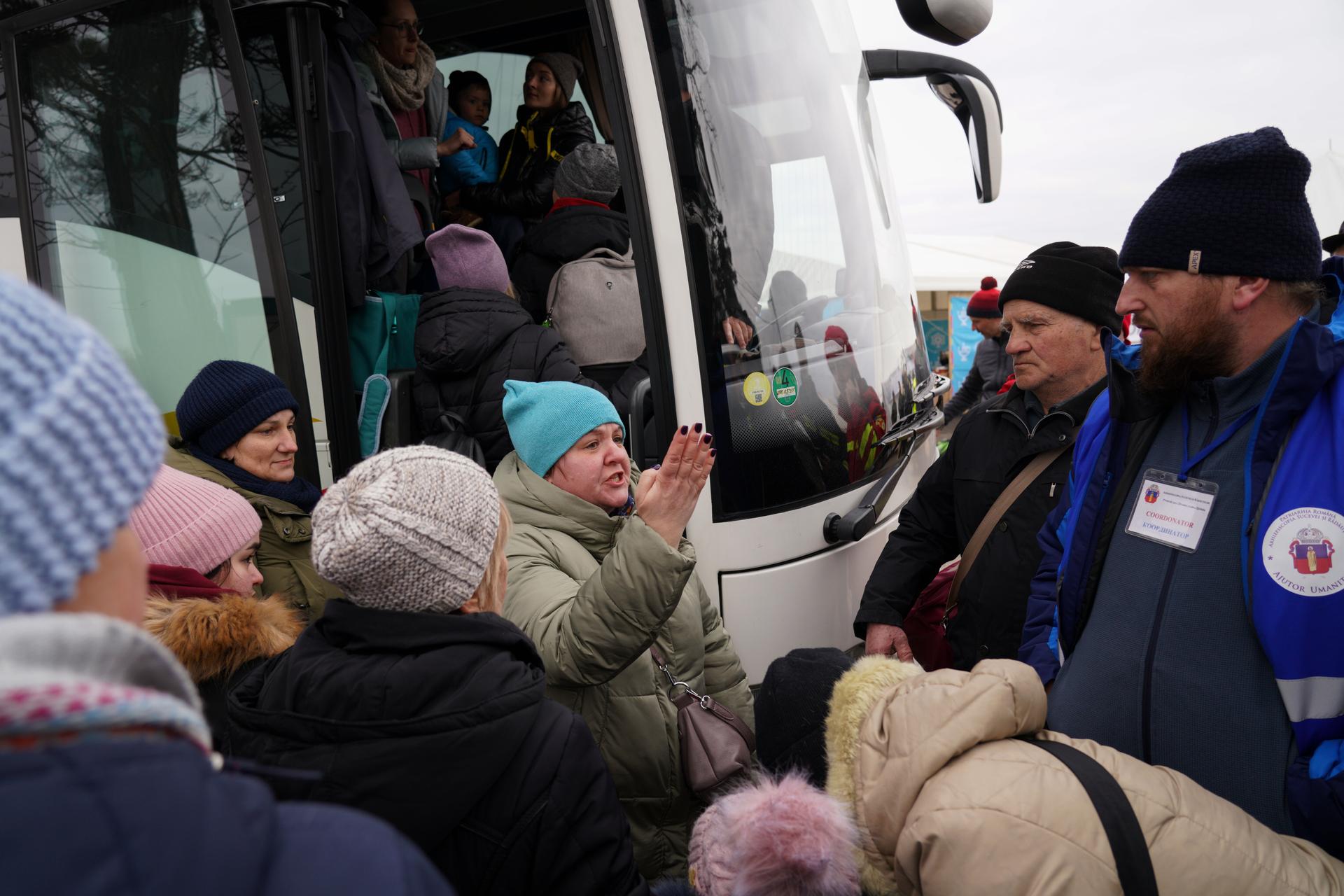
Romanians posted messages offering beds on a Facebook group called United for Ukraine. Farms, hotels and monasteries have opened their doors.
In the town of Suceava, the Mandachi Hotel and Spa, a four-star hotel converted its ballroom into a temporary shelter, with mattresses on the floor numbered with small paper labels.
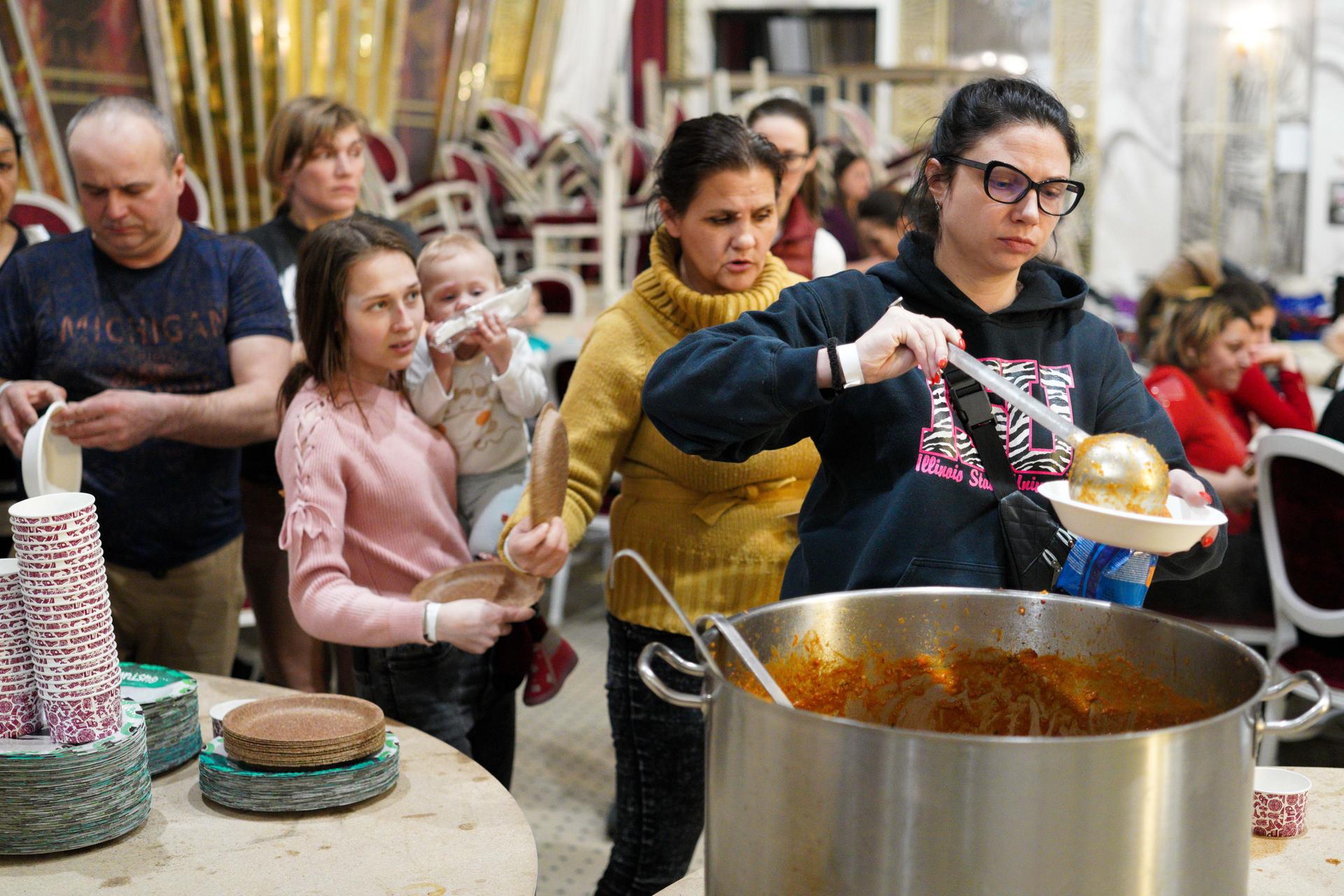
Over the past week, more than 2,000 people and 100 pets have taken shelter here, with row upon row of numbered mattresses under an incongruous glittering disco ball.
Viktoriia, a math teacher from Kyiv who only gave her first name, sat with her 6-year-old daughter Katya in her arms. They’d been at the shelter for a day or so, waiting for a bus to Germany to join Moroz’s adult daughter, who left through Poland.
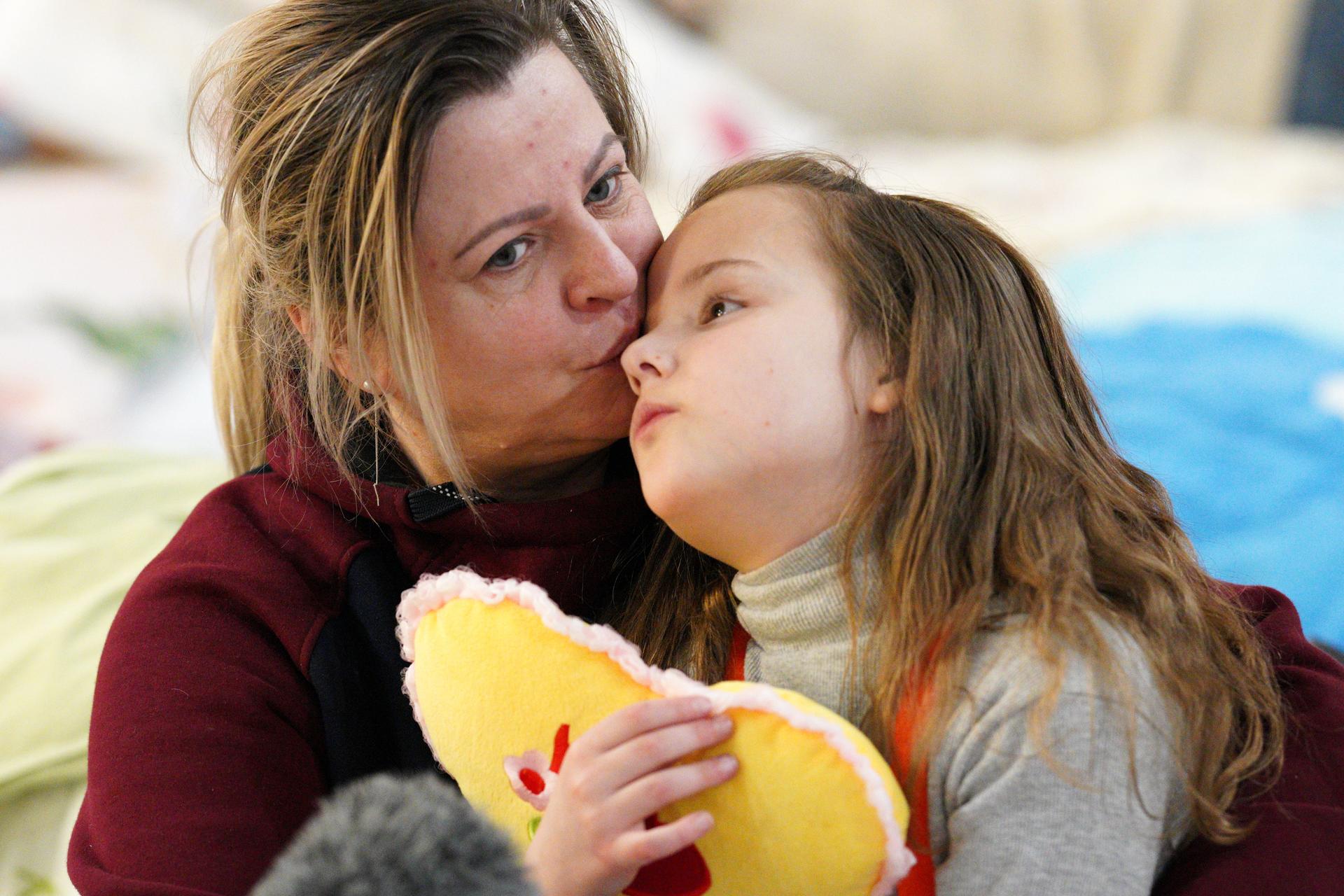
“I never expected this to happen.”
“I never expected this to happen,” Moroz said, holding back tears.
Katya climbed in her lap.
“Yeah, it’s a bit strange,” Moroz said of their predicament. “But the people are so kind.”
For people like Moroz, the decision to leave Ukraine was clear. The bombs came too close. Escape routes were getting cut off.
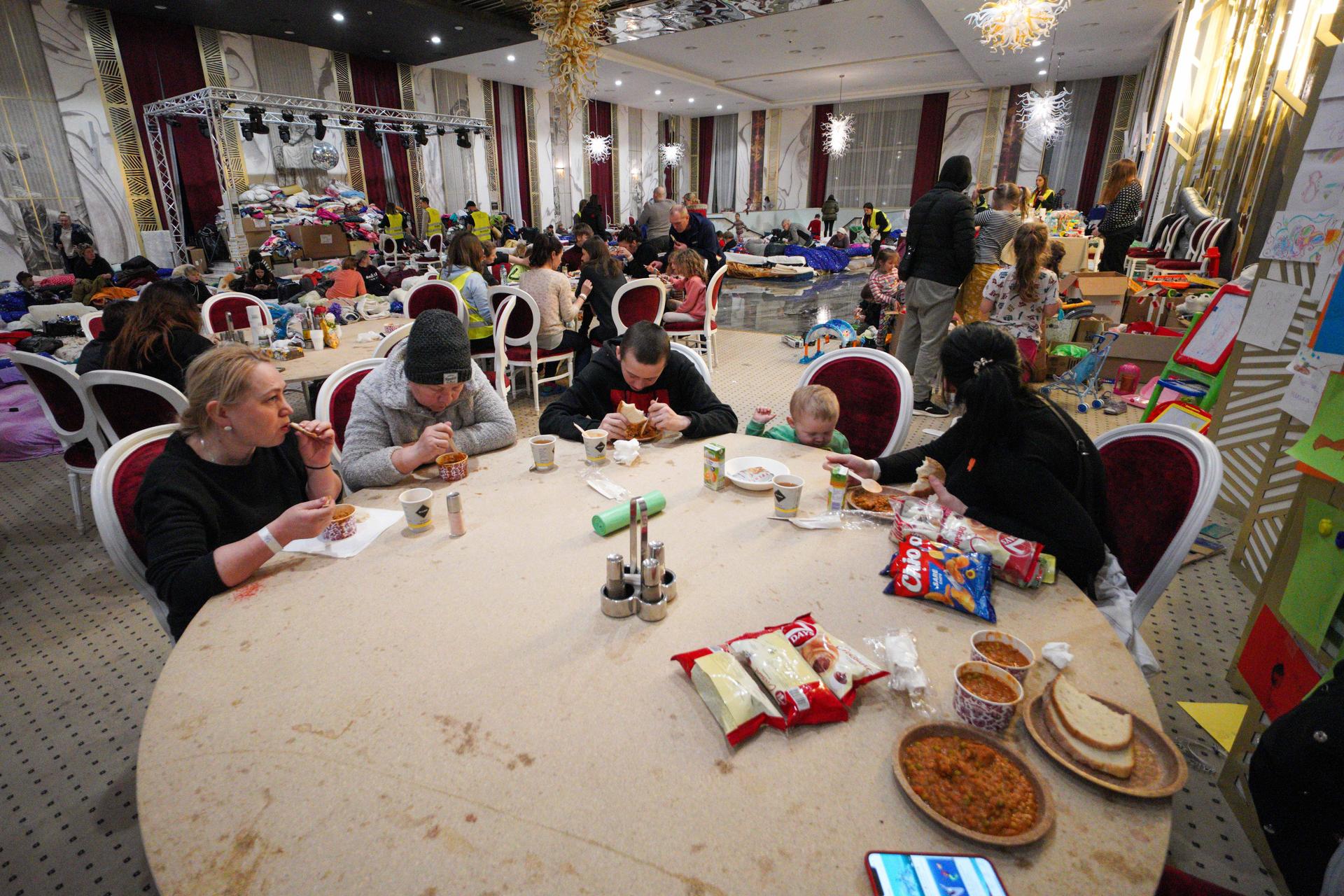
But others, like Ivana Kasprova and Tatiana Bachinski, two friends from western Ukraine (an area that’s yet to come under attack), said they weren’t ready to leave their country behind.
The friends fled with Bachinski’s 6-year-old son and Kasprova’s 12-year-old granddaughter. Their plan is to leave the children with relatives in Poland and return to their hometown to support the resistance.
It’s not an easy decision.
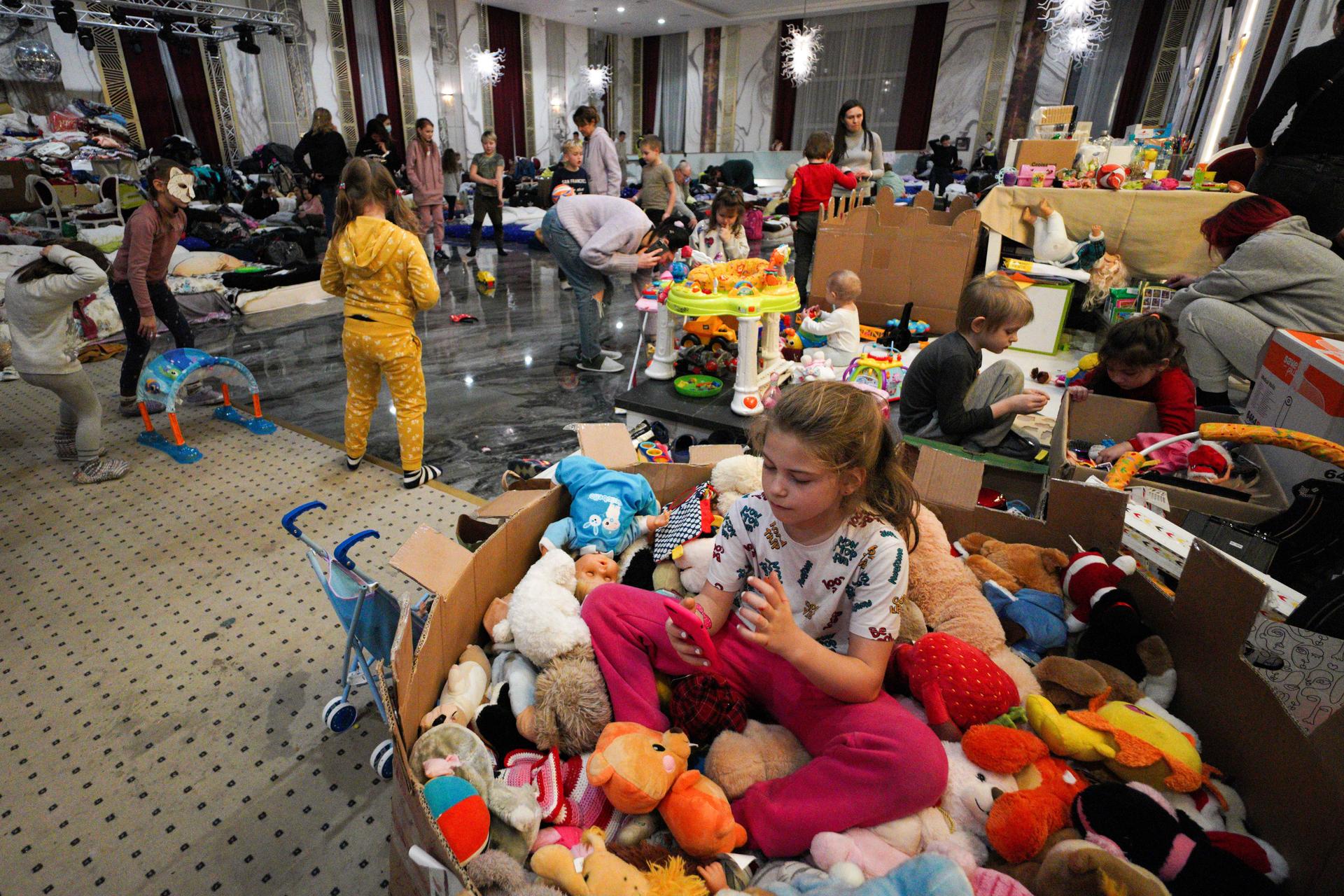
“We had to get the children out first because in the worst-case scenario, if we have to leave quickly — they might slow us down,” Bachinski said.
In the hotel’s converted ballroom, kids found each other and made new friends. They kicked around a ball, shrieking and giggling, while their parents looked on, their minds elsewhere.
Raul Stef contributed to this report.
